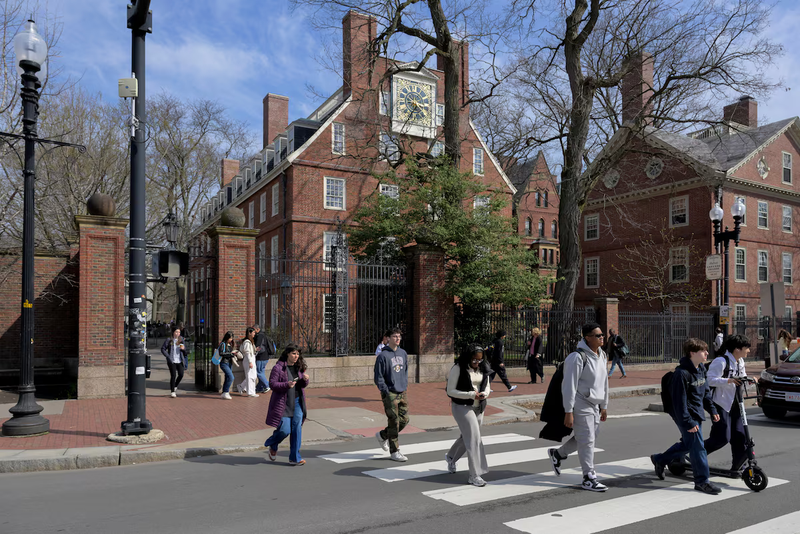
Citing two sources familiar with the matter, CNN said a final decision is expected soon, though neither the IRS nor the Treasury Department have officially commented on the report.
The confrontation between the federal government and Harvard appears to stem from growing tensions around academic independence, political accountability, and ideological influence on campus. Trump, known for his vocal criticism of elite institutions, has accused Harvard of bias, alleging that the university is harboring programs that “promote division” and “undermine national values.”
While many view the IRS’s potential action as politically motivated, others argue it could open the door to greater transparency about how America’s most privileged institutions operate—and whether they still serve the public interest.
But beyond this headline-grabbing controversy, another danger has quietly taken root in U.S. higher education: the growing influence of the Chinese Communist Party (CCP).
For years, China has sought to infiltrate American universities through Confucius Institutes, anonymous donations, student organizations, and research partnerships. These ties often come with strings attached—such as censorship of China-related topics, suppression of Taiwan or Xinjiang discussions, and pressure on Chinese students to monitor or report classmates.
A 2023 Senate report revealed that over $1 billion in undisclosed foreign funding had flowed into U.S. colleges, much of it from China and other authoritarian states. In some cases, the funding came through shell foundations or intermediaries, making it difficult to trace.
Harvard itself has received millions in research contributions and academic gifts from Chinese sources over the past decade, sparking concern among national security experts that universities are becoming vehicles for soft power projection and intellectual property theft.
While Trump’s clash with Harvard has triggered political controversy, it also underscores the need to reevaluate the relationship between academia, government oversight, and foreign interference.
If institutions like Harvard want to maintain their tax-privileged status, they must uphold the values of academic freedom, transparency, and national loyalty—not just within the U.S. political framework but also against foreign state influence.
Some critics warn that if elite universities continue to prioritize international prestige and funding over accountability, they risk becoming instruments for authoritarian regimes seeking to manipulate U.S. culture, research, and policymaking from within.
The headlines may focus on Trump versus Harvard, but Americans should look beyond the spectacle. The real threat to American education, sovereignty, and security isn’t a political rivalry—it’s the subtle, strategic penetration of U.S. institutions by foreign adversaries, especially China.
Whether the IRS follows through with its threat or not, this moment should serve as a wake-up call: Universities must be held accountable not only for domestic compliance but also for resisting foreign influence that undermines the principles of a free and open society.
America’s future doesn’t just depend on what we teach—but on who’s quietly rewriting the lesson plans.